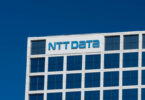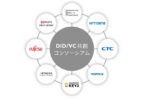Japan’s largest trading entity Mitsubishi Corporation and telecommunications company Nippon Telegraph and Telephone Corporation (NTT) have formed a joint venture called Industry One. The new company is expected to launch later this year, and its purpose is to explore and implement cross-industry digital transformation solutions, including blockchain.
The companies invested 900 Million Japanese Yen ($8.3 million) in the venture, with Mitsubishi owning 51% of the company and NTT the balance. The initiative will offer consulting services and partner with other companies for digital transformation (DX) solutions.
Industry One is already working on a project to support DX in the food distribution sector. Alongside NTT Data, NTT’s tech subsidiary, the joint venture is working on digitizing and upgrading stock management and distribution processes using blockchain technology.
Its purpose is to reduce inventory levels. However, when stock levels decline, this usually results in product shortages, but the solution aims to enable a lower rate of product shortage simultaneously.
The infrastructure is expected to link scattered data involved in the distribution supply chain. The data relates to retail, wholesale and manufacturers’ inventories, as well as order receipts, demand forecasts and weather forecasts.
A proof-of-concept that also used artificial intelligence covered around 10,000 products across various distribution centers. The results found that inventories were reduced by an average of 30% and as much as 40%. Given the trial’s success, the solution is expected to be launched across Japan’s Lawson distribution centers in the coming months. Lawson is a chain of convenience stores and a Mitsubishi subsidiary, and its distribution centers are operated by Mitsubishi Shokuhin, the wholesaler of processed foods.
Like most growing economies, Japan has a serious food waste problem. According to the Ministry of Environment, over 19 million tons of food are thrown away every year, and of those, nine million are thrown away even before their expiration date. Beyond being an environmental concern, businesses lose money when stock goes to waste. As such, Industry One’s solution has a strong potential to shift how food inventory is managed.
“Not only does it promise to raise efficiency at Mitsubishi Shokuhin, but it should also help to address problems faced by our customers, optimize the food distribution industry as a whole, and contribute to the sustainable development of regional communities across Japan,” said Mitsubishi Shokuhin’s President and CEO Tory Moriyama.
Other proof of concepts will be conducted later in the year using blockchain and other technologies to address food waste and labor shortages.
Additionally, Mitsubishi has formed three other business alliances with Toshiba Tec, Fujitsu, and LaKeel to develop DX services in Japan further. Toshiba Tec offers retail solutions that generate statistical food sales data, which Mitsubishi will use to build demand forecasts. Fujitsu is working on ways to digitize orders to food wholesalers. LaKeel provides digital transformation software tools and Mitsubishi is exploring its use in inventory optimization.
Meanwhile, Mitsubishi is an investor in TradeWaltz, NTT Data’s blockchain trade platform. TradeWaltz’s cross-industry solution aims to digitize trading documents through the creation of structured documents. It is similar to Tradelens, but with a Japanese focus. NTT Data also is the implementation partner of Spunta, an Italian-based blockchain platform for reconciling interbank accounts which has more 100 Italian banks using it. Additionally, NTT Data is working on Covid-19 blockchain health certificates with the Japanese government.






